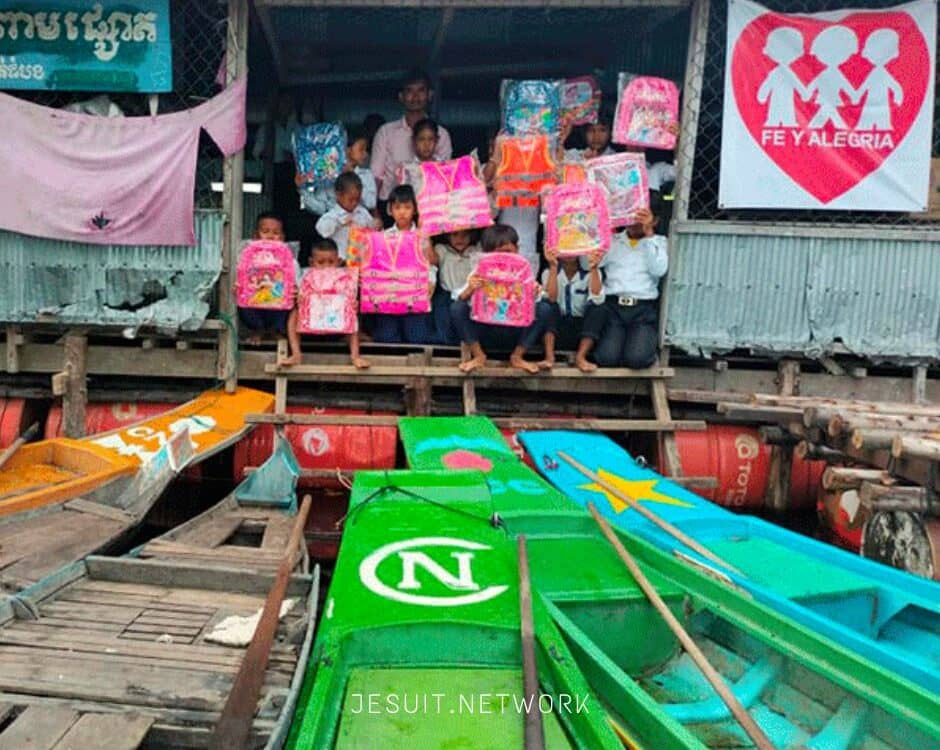This website uses cookies so that we can provide you with the best user experience possible. Cookie information is stored in your browser and performs functions such as recognising you when you return to our website and helping our team to understand which sections of the website you find most interesting and useful.
Fourteen African Jesuit institutions and collaborators join to promote reconciliation
More than fourteen institutions of the Jesuit Africa social centres (JASCNET) and the Ignatian family convened at the Hekima Institute of Peace Studies and International Relations (HIPSIR), Nairobi, from the 10th to the 14th of September 2017 for a seminar to explore opportunities of collaboration and joint strategies.
The seminar was officially opened by JASCNET director who introduced the objectives of the seminar: reflect on what the social apostolate is, develop good practices for the social apostolate, promote synergies, and recommend to social centers the best way to promote faith, justice and reconciliation in their ministry.
The seminar addressed the topics of the faith that does justice, spirituality of social apostolate, the Magis, the preferential option for the poor, collaboration, strategic plan and methods of action in the social apostolate. All these topics were derived from the newly published training manual entitled “Characteristics of the Jesuit Social Apostolate in Africa”.
The social centres were urged to engage in networking and collaboration as key dimensions of ministry. The participants were asked to establish networks without discriminating anyone or any religion. However, to maintain the values of their institutions, and not to compromise them when engaging in processes of collaboration and networking with various partners.
The social centres were reminded that no social centre can be efficient without a strong strategic plan that is well organized, focused on the mission and with functional structures.
With regard to activities throughout the social apostolate, five components were highlighted: they must be rooted in compassion, accompaniment and service of impoverished communities; they must reach the frontiers, research and explore how historical and structural relationships have shaped existing situations; they must raise awareness and engage in advocacy to build bridges between the poor and those in decision making positions.
In groups, participants discussed issues that led them to a better understanding of the strengths and opportunities offered by Ignatian spirituality. This would enable them to be contemplatives in action, to be inclusive, and to promote justice, and make decisions based on well informed, evidence based research and on rigorous discernment. The groups further discussed the opportunities offered by use of a strong Jesuit brand: it gives them a formidable force in advocacy, and strengthens existing structures within the Jesuit social centres, enabling them to carry out ministries and translate into action whatever research has been done.
There were fourteen institutions and networks represented in the meeting: the Africa Jesuit AIDS Network (AJAN, Kenya), the Arrupe Social Centre (CSA, Madagascar), the Centre for Study and Social Action (CEPAS, DRC), the Christian Life Community (CLC, Kenya), the Catholic Youth Network for Environment Sustainability in Africa (CYNESA, Kenya), the Jesuit Center for Ecology and Development (JCED, Malawi), the Jesuit Centre for Theological Reflection (JCTR, Zambia), Jesuit Hakimani Center (JHC, Kenya), the Jesuit Institute of South Africa (JISA, South Africa), the Jesuit Refugee Service (JRS, DRC), the Jesuit Center for Leadership and Development (JCLD, Zambia), the Service Yezu Mwiza (SYM, Burundi), and Silveira House (Zimbabwe).
The full press release can be read here.





